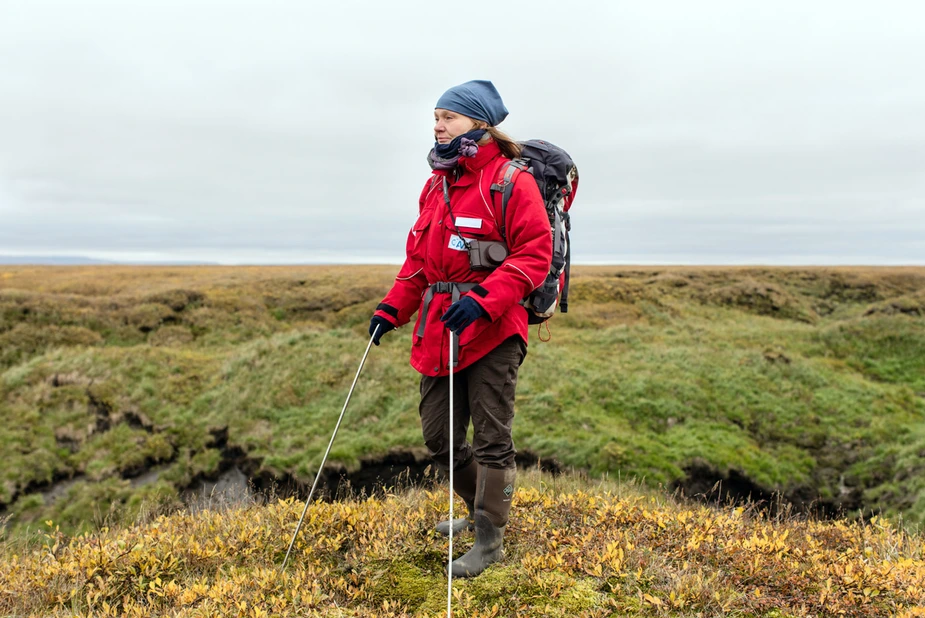The frost expert
Julia Boike, professor at the Geography Department of Humboldt-Universität zu Berlin, explores the arctic underground
The area is almost deserted. A small aeroplane carrying equipment, food, and clothes for almost three months is forced to land on mud and gravel. There is a single hut; when overcrowded, people sleep in tents. Except for mornings and evenings, when there is radio contact with the base in Resolute Bay, it is completely silent. Julia Boike still can’t help waxing nostalgic when thinking back to her first research stay in the Canadian Arctic. ‘I always wanted to work in cold regions,’ she says.
She started exploring the glaciers in the near-by Swiss Alps as a student of hydrology in Freiburg. Her three-year stay at Wilfrid Laurier University in Waterloo in the Canadian province Ontario turned out to be one of her life’s key events in the early nineties. Summer after summer, she spent a few months north of the Arctic circle on Axel Heiberg Island with a small group of colleagues, where she researched the local water cycle. What happens to the so-called permafrost when climatic conditions change? That is the question which she has been dealing with ever since.
Permafrost is defined as ground that remains at or below 0 degrees Celsius for two or more years. In North Siberia, it can extend as far as one and a half kilometres underground. Boike has gained a lot of experience in cold regions like these. As a PhD student at the Potsdam-based Alfred Wegener Institute, she explored the ‘thermic and hydrological properties of the active layer close to the surface’ on the Taymyr Peninsula in North Siberia.
She lived in Fairbanks, Alaska, for three years, where she gave birth to the older of her two sons. Since 1997, she has been frequently working in Spitsbergen as well as the estuary of the Lena in the Arctic East of Siberia and the Mackenzie River in Canada’s Arctic Northwest. ‘I adore these places,’ she says. Their natural beauty, the solitude, and the ‘extreme changes in temperatures.’ She saw her first aurora borealis on the Taymyr Peninsula: ‘It was breath-taking. I stood on a mountain and saw the sky opening above me.’
During the almost three decades of her life spent as a researcher, Boike witnessed rapid changes. Since her first stay in Spitsbergen, for example, the annual average of the local air temperature rose from five to two degrees below zero: ‘I can see the warming in my data. It’s happening.’ This type of research, however, should be more far-reaching.
She remains closely connected to the Alfred Wegener Institute and the city of Potsdam, where she lives with her family and has a garden. As of recently, she also frequents Adlershof as a university lecturer, where she will soon become a full professor at the Geographical Institute of Humboldt-Universität zu Berlin after lectured on polar geography during last winter’s term. However, first she will be gone until May – with a research group in Siberia’s Lena Delta.
By Dr. Winfried Dolderer for Adlershof Journal
